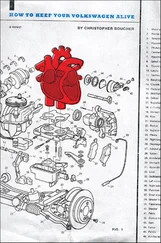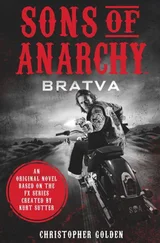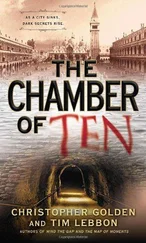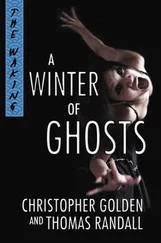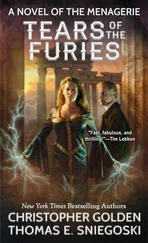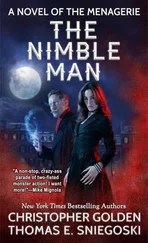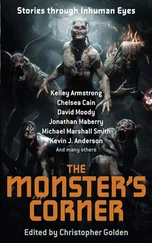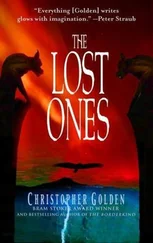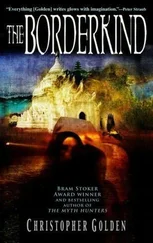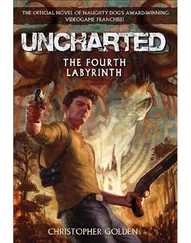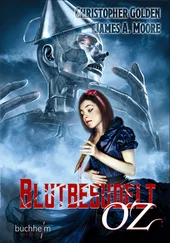Or,
“Sometimes we have to put other people’s interests in front of our own,” the father-character told the sister-character. “That’s part of being an adult.”
“But I really wanted to go on the ski trip,” said the sister-character.
“There’ll be other ski trips,” said the father-character.
I look back on that show now — here, in this cramped room, with a head full of doubts — and man, I miss those half-hour arcs: Mr. LaFontaine Gets a New Job. Scooter Gets Lost. Mrs. LaFontaine Meets a Friend for Coffee. Scooter Needs a Hug. Samantha Makes a Friend , and so many others.
We weren’t the only show in town, of course. Every family I knew had a sitcom — their shows were broadcast into our eyes just as ours were broadcast into theirs. With so many shows to choose from, it was difficult to keep your family’s ratings up. You had to say the right things to make people keep watching. After a few seasons on-air, our show became less popular and we needed to make changes. My Mom suggested that we make the show more serious — more dark. In one episode, the father-character’s brother-in-law died and the last scene was Scooter and Mr. LaFontaine on the front stoop. “There’s no sense to the universe,” said Mr. LaFontaine, swigging from a bottle of beer. “The Core? Some central meaning? It’s a fucking joke . Or else how could people suffer so much and die so young?”
“I guess cancer is the Core’s way of saying ‘Screw you,’ ” I said.
“I guess so, sport,” my Dad said.
The mother-character that season was closer to my actual mother: moodier, more unpredictable. “Parents don’t have to love their children,” she said in one moral.
“I thought love was unconditional,” said my sister.
“Not necessarily,” said my Mom. “You have to earn it.”
When our ratings didn’t improve, we tried the opposite tack: we made the show light, funny, almost vaudeville. Instead of death or illness there were spit-takes and pratfalls. My Dad’s signature line was “Waaa!” his eyebrows leaping away from his eyes.
By this time, though, I was tired of changing. My sister and mother complied, but not me — I was rambunctious, remember? Rebellious, a badseed. At a dinner scene one day, my Mom asked me how school was. My line was, “Nice fine good OK!” Instead, though, I said, “Freaking terrible.”
Haw .
My Mom’s eyes were blades, but her smile held. “Why terrible?”
“Chamblis’s Mom has HIV,” I said.
Haw haw haw .
“Cut!” the television in our kitchen yelled. “Let’s keep it lighthearted, Scoot!”
“  ,” said my Mom.
,” said my Mom.
I didn’t say anything.
“And,” the TV said, “rolling!”
“How was your day, Scoot?” asked my Mom again.
“My brain hurts,” I said. “Like, my skull is too small for my thoughts.” And I slammed my head into my plate of spaghetti.
“Cut!” said the television. “What the fuck,  ?”
?”
Our ratings continued dropping. Soon, our TVs lost hope — you could see it in their eyes when they looked at us. When the physical comedy didn’t work, my Dad pushed us even further: we went cartoon. Doing so meant going to the doctor every week for animation injections, and retooling our dynamic again. My Dad’s repetitive gaffe that season was banging his thumb with his hammer. He’d do it over and over. “YeOW!” he’d shout, and run around with his red thumb in the air.
Soon, even our cans stopped laughing. Then one of our TVs quit, and my Mom started flubbing her lines — she’d stare out the window, or pray silently in her seat, or absentmindedly pick up a book on set and start to read, and we’d have to shoot the whole scene over. My Dad didn’t give up; in one last-ditch attempt to stay on the prayer-air, he decided that we’d stop the injections, go back to the original formula, and invite on guest characters: Chamblis’s Mom, the town’s oldest Orange Traffic Cone, the Memory of Johnny Appleseed. But by then even our living-room TV wouldn’t watch us for half an hour.
In our last episode, my Dad and sister and I chose our smiles and took our places when we realized that my Mom wasn’t on set. The TV gave the five-minutes-to-places call and Mom still hadn’t shown up for costume or makeup. “Where is your mother?” my Dad asked between cambridges.
“I’ll go find her,” I said. I looked upstairs, in the front yard, in her gym in the garage. I found her in the far corner of the backyard, kneeling in the wet grass.
I ran over to her. “Mom?” I said.
“—and please,” she was saying. “Protect us from doubts. And worries. Protect us from ourselves .”
“Mom, the show’s starting,” I said.
“Take care of them,” she said. “Take care of them while I’m gone.”
“Mom?” I said.
“I’m praying,” she said. “Do the show without me.”
I heard the credits and the music and I ran inside. “And now,” the TV said, “the MARGINALS!”
The three of us stared at each other. My Mom was supposed to deliver the first line.
“How was—” my Dad stumbled, “your day, Sam—?”
“Cut!” said the TV. “We need the whole family! Goddammit!” The TV unplugged itself and stormed out of the room. “Fuck this noise!”
The TV didn’t come back until late that night — it smelled of beer and cigarettes for the whole week afterward. And from that day forward? The screen wouldn’t look at me. All it did was show me things. Maybe to hurt me, it mostly showed me other families, families happier than mine, getting great ratings, raucous laughs, happinesses. Our house, meanwhile? Grew lonelier. Colder. Emptier. And no one even saw it. No one even cared what happened to the Marginals.
THE BICYCLE BUILT FOR TWO
Wait a second. I just realized that I never told you the story about my bicycle, the Bicycle Built for Two. It’s an easy one to pull from the page. Here, grab ahold and pull.
Pull!
Bicycles, in Appleseed, were very meaningful. A good used bicycle — my father’s ’49 Robinson three-speed, say, well-maintained, with chordspokes and a flim — would run you about seven hundred theories. That was more than one month’s rent in an apartment at Woodside!
My father was given that bicycle by his mother, the Rosary, who prayed for it, and he let me ride it all over Appleseed. When I was ten, though, the bike was stolen out of our garage in Appleseed. It was my fault — I was supposed to lock the bike up with math but I forgot. I woke up the next morning and the bike was gone — you could see the tire tracks in the dewy grass where someone had just walked off with it. Our neighbor Bob Lonely later said that he might have heard the bike shouting, but thought it was some wildwords in the margin.
For about a year I didn’t have a bike; I rode my skateboard or I walked.
When I was about eleven, though, the kids that I hung out with — Spondee, Kielbania, Large Odor, the Couplets, Canavan — started getting dirt bikes: single-speed bikes with knobby tires, pegs on the back wheels, and hardware built especially for jumps and tricks — for their birthdays or Core Days. Some of my friends — the Couplets, O’Hara — had meaningful parents, and Canavan inherited his bike (after his brother served in the Trenches and died from glue poisoning). Large Odor stole his Haro from a bike rack in East Appleseed.
Reader: Stole it? Odor? No. That’s not true.
I swear to the Core it is.
Reader: Odor’s a good kid! He wouldn’t do that.
Читать дальше
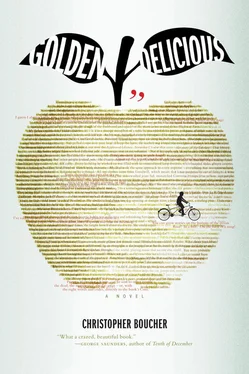
 ,” said my Mom.
,” said my Mom.
